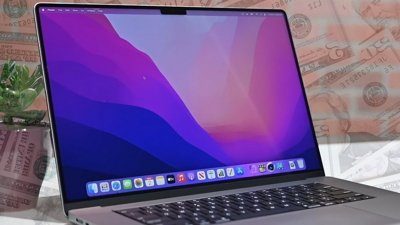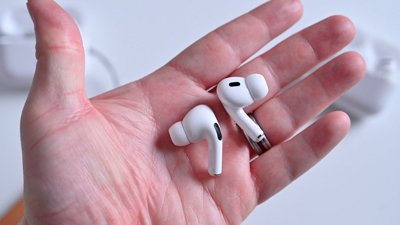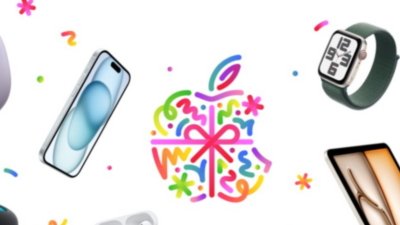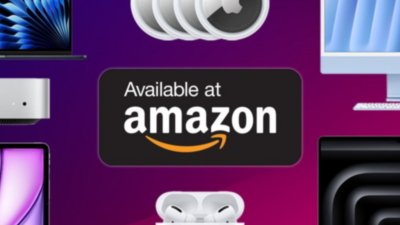After members of the Merchant Customer Exchange pulled support for Apple Pay mobile payments this past weekend, specifically Rite Aid and CVS, a major partner in the consortium has offered its take on why Apple's solution is not being implemented.
Offering color to the brewing mobile payments battle seemingly sparked when Apple threw its hat into the mobile payments ring last week, an unnamed Walmart representative told Business Insider that big-name retailer consortium MCX is thinking of consumers when it comes to denying support for Apple Pay.
There are certainly a lot of compelling technologies being developed, which is great for the mobile-commerce industry as a whole. Ultimately, what matters is that consumers have a payment option that is widely accepted, secure and developed with their best interests in mind. MCX member merchants already collectively serve a majority of Americans every day. MCX's members believe merchants are in the best position to provide a mobile solution because of their deep insights into their customers' shopping and buying experiences.
Apparently the statement took a bit of cajoling, and for good reason, as the topic has developed into something of a hot button issue over the past few days. Following Apple's remarks on the matter, Walmart's thoughts offer valuable insight from the perspective of MCX, which is on the brink of rolling out Apple Pay competitor CurrentC.
When Apple Pay launched last Monday with iOS 8.1, iPhone 6 and 6 Plus owners eager to test out Apple's first foray into mobile payments struck out to see where and how the system worked. Initially, MCX partners Rite Aid and CVS supported NFC-based touch-less transactions, including Apple Pay, but that changed by the weekend. As of Saturday, the two drug store chains had shut down NFC transactions, assumedly the result of contractual obligations to MCX.
CurrentC has been in development since 2012, but is a far cry from Apple's streamlined solution. A smartphone-powered system, CurrentC requires users download a specialized wallet app that generates a QR code for scanning upon checkout. Alternatively, a point-of-sale terminal can generate the code to be read by a user's smartphone. Either way, customers need to open the app and present their device to make in-store purchases.
Unlike Apple Pay, CurrentC offers incentives like rewards programs, but critics point out purchase histories are recorded and can be used in marketing campaigns. CurrentC also requests to link up with users' bank accounts, while Apple Pay deals only with credit and debit cards at this time.
In addition to the security risks, CurrentC's implementation is more of a burden when compared to Apple's protocol. On checkout, Apple Pay automatically recognizes POS terminals, requiring only a simple thumbprint scan through Touch ID to send over relevant anonymized payment data, which is then processed as a secure tokenized transaction.
The mobile payments space is estimated to grow into a multi-billion business and MCX is looking to get a piece of that pie by bypassing credit card network fees. Apple is also reportedly collecting swipe fees for Apple Pay payments, and may move further into the industry depending on Apple Pay's performance.
At such an early stage in the game, no one payments option can be named a decisive frontrunner, but initial Apple Pay tests bode well for the system's future. It will be interesting to see how MCX responds to pushback from consumers, something the consortium is at least taking into consideration given today's comments.
 Mikey Campbell
Mikey Campbell














 AppleInsider Staff
AppleInsider Staff
 Andrew Orr
Andrew Orr
 Amber Neely
Amber Neely

 William Gallagher
William Gallagher


 Christine McKee
Christine McKee








104 Comments
The supplier of fans of 'Honey Boo Boo' says something...
Why does the Vagiclean scene from Me, Myself, and Irene come to mind? Can someone please post it?
They are thinking of customer data when they say this and not customers.
Merchant Customer Exchange = Merchants that exchange customer data.
They hate the anonymity of Apple Pay. You know they are already pooling customer data on card swipes because they can. CurrentC is about cutting out the credit card companies the data sharing part doesn't require CurrentC. It just looks to get worse as people need to provide so much sensitive information for an account.
I'm boycotting all of the MCX stores I can. If I must go to one, they can have some cash. They can suck on their big data.
The obvious followup question to any of the member companies of MCX led by Walmart is: Apple's Apple Pay system is compatible with any merchant with a working NFC WavePass system as a point of sale terminal. This is already the worldwide standard and soon to be the standard in the US in a year. Google's Android phones and WavePass credit cards use this system too. If there is no support necessary from your company to make it work, why are you actively blocking its use?
Why is it that these types of services ultimately wind up being complex and data hungry? By contrast, Apple Pay is like a breath of fresh air. I'll cast my vote with my wallet, and let merchants know why I'm choosing to buy or not buy at their store. Walmart et.al...take note...the cream always rises to the top. As a consumer I'm not interested in jumping through a lot of hoops simply to make a payment, especially when simpler methods are available. Also, I really don't trust supplying vendors with my secured personal information, nor do I like their asking for it.